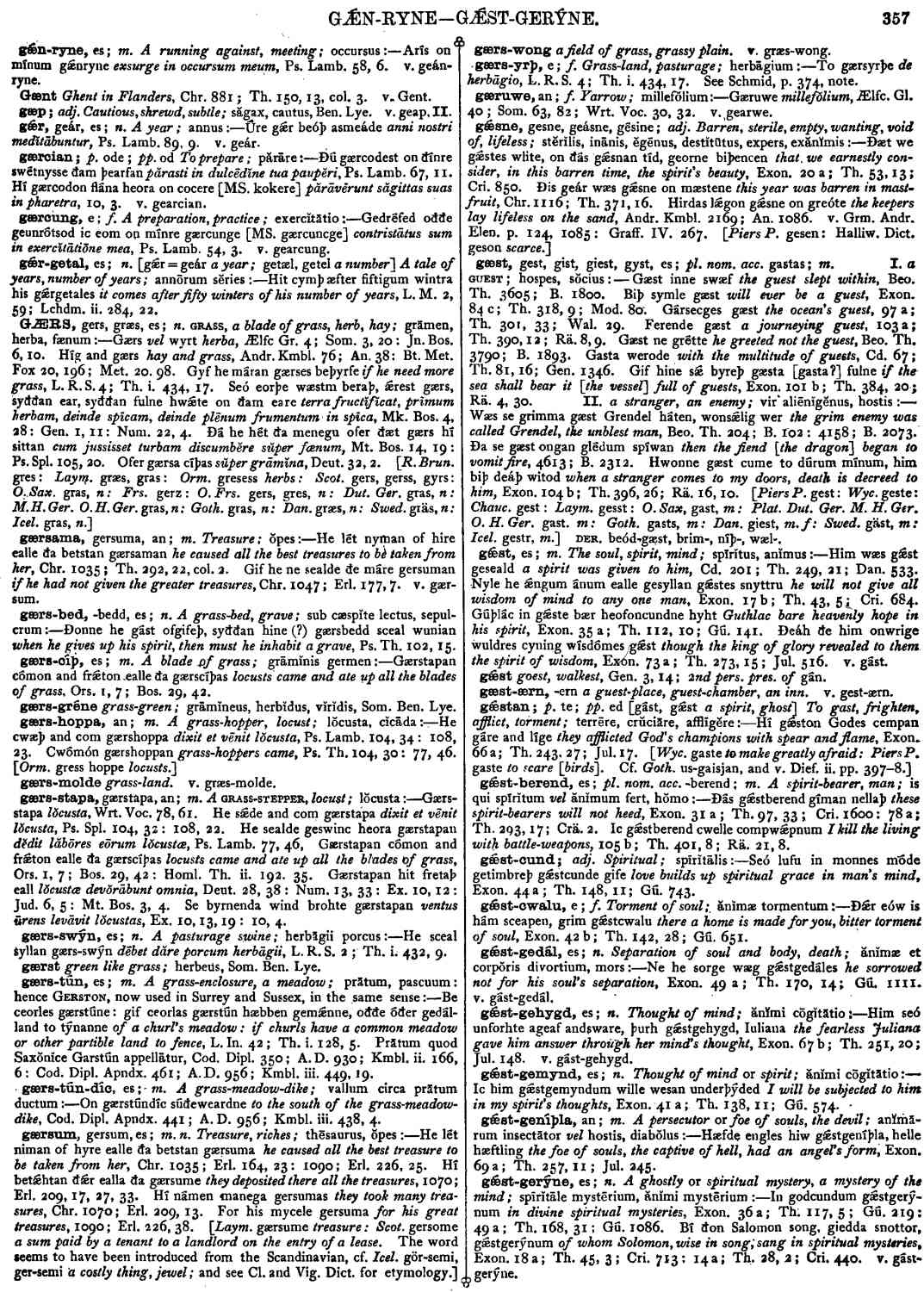gæst
- noun [ masculine ]
-
Gæst inne swæf
the guest slept within,
- Beo. Th. 3605 ;
- B. 1800.
-
Biþ symle gæst
will ever be a guest,
- Exon. 84 c ;
- Th. 318, 9 ;
- Mod. 80.
-
Gársecges gæst
the ocean's guest,
- 97 a ;
- Th. 301, 33 ;
- Wal. 29.
-
Ferende gæst
a journeying guest,
- 103 a ;
- Th. 390, 12 ;
- Rä. 8, 9.
-
Gæst ne grétte
he greeted not the guest,
- Beo. Th. 3790 ;
- B. 1893.
-
Gasta werode
with the multitude of guests,
- Cd. 67 ;
- Th. 81, 16 ;
- Gen. 1346.
-
Gif hine sǽ byreþ gæsta [gasta?] fulne
if the sea shall bear it [the vessel] full of guests,
- Exon. 101 b ;
- Th. 384, 20 ;
- Rä. 4, 30.
-
Wæs se grimma gæst Grendel háten, wonsǽlig wer
the grim enemy was called Grendel, the unblest man,
- Beo. Th. 204 ;
- B. 102 : 4158 ;
- B. 2073.
-
Ða se gæst ongan glédum spíwan
then the fiend [the dragon] began to vomit fire,
- 4613 ;
- B. 2312.
-
Hwonne gæst cume to dúrum mínum, him biþ ðeáþ witod
when a stranger comes to my doors, death is decreed to him,
- Exon. 104 b ;
- Th. 396, 26 ;
- Rä. 16, 10.
Bosworth, Joseph. “gæst.” In An Anglo-Saxon Dictionary Online, edited by Thomas Northcote Toller, Christ Sean, and Ondřej Tichy. Prague: Faculty of Arts, Charles University, 2014. https://bosworthtoller.com/13138.
Checked: 1